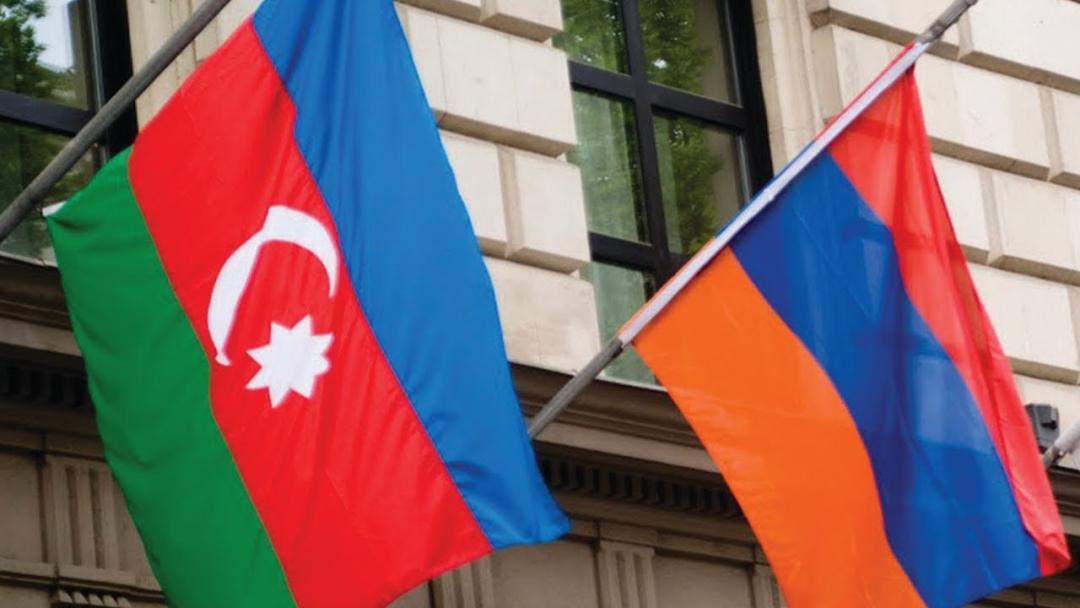
Nagorno-Karabakh: latest developments

On 27 November, the French Foreign Ministry commented on the resolution on the recognition of Nagorno-Karabakh (Caucasus Watch reported), by stating that France does not recognise Nagorno-Karabakh as an independent state.
The spokesperson of Russia’s Ministry of Foreign Affairs Maria Zakharova said that the situation in Nagorno-Karabakh continues to stabilise, as the ceasefire is holding on and no provocations were observed against the Russian peacekeeping contingent deployed in Nagorno-Karabakh. Zakharova also spoke on the issue of foreign fighters in Nagorno-Karabakh. “This work does not assume public comment on every step, but I can assure you that it is being carried out. It is, of course, held with the parties to the conflict, and with experts who either have the data or the opportunity to participate in resolving this issue. Although it is a very complicated formulation, I believe it bespeaks the main thing that this work is being done, and this topic is under the constant oversight of our military” she stated.
In the context of Zakharova’s statements, Armenia’s Prime Minister Nikol Pashinyan said that he had two telephone conversations with Russian President Vladimir Putin on this day, saying that he discussed issues such as the settlement of the Lachin corridor, missing persons, search operations, the bodies of the dead, the exchange of prisoners, the deployment and delimitation of peacekeepers, as well as the unblocking of transport communications in the region. Putin’s spokesperson Dmitry Peskov commented on this statement saying that Putin is maintaining an intense dialogue with Pashinyan and the Azerbaijani President Ilham Aliyev, but emphasised that Putin’s administration does not issue official statements on every international telephone conversation that he holds.
Meanwhile, Azerbaijan’s Foreign Minister Jehyun Bayramov stated at the meeting of the Council of Foreign Ministers of the Black Sea Economic Cooperation Organization (BSEC) that a new stage of the Karabakh settlement started. This is a stage of reconstruction and rehabilitation and restoring a peaceful coexistence in the region. “A vital independent land corridor between Asia and Europe could be launched, which will create opportunities to enhance the role of our region in trade,” he noted.
The OSCE Communication and Media Relations Section stated that after the agreement was signed, the situation the Office of the Personal Representative of the OSCE Chairperson-in-Office (PRCiO) operates under has changed significantly. With this change comes the need to decide on how the OSCE and the Office of the PRCiO can best continue its work. “The OSCE, as a security organization with a comprehensive understanding of security, has a role to play in the transition from the ceasefire and crisis management to a fully-fledged peace agreement and post-conflict rehabilitation. The PRCiO sees a role in his activity in providing ‘good offices’ to all stakeholders, keeping communication channels open; assisting in translating political agreements into concrete processes and actions, conducting follow-up activities and reporting; continuing to be the ‘eyes and ears’ of the OSCE on the ground, ensuring international objectivity and neutrality in the process; supporting the design and implementation of agreed confidence-building measures, for example in the areas of transport and communication, economic issues or water sharing and people to people contacts,” the statement read.
Developments from Armenia
Armenia’s Prime Minister Nikol Pashinyan addressed his nation through a Facebook live video message saying that the 9 November agreement contains controversial issues, adding that active diplomatic work was underway on all these concerns. He also said that maintaining peace in the region would become a new priority of Yerevan's foreign policy. “Today, an important goal is to preserve the achieved peace, to make it last, it would be much better if we can make it permanent,” he said. Pashinyan also stated that his government would be honest with the citizens. He also said that there will be no new revolution in Armenia.
The country’s National Assembly voted against the lifting of martial law in the country. The parliament’s debate on lifting martial law was marred by bitter altercations between pro-government and opposition deputies. At one point, the parliament's deputy speaker Alen Simonyan invited security guards into the parliament auditorium to stop the deputies from coming to blows. The ruling My Step party members stated that martial law was still needed for the ongoing redeployment of Armenian army units along Armenia’s border. My Step members believe that Armenian forces need to be stationed near the four districts west of Karabakh that are being handed over to Azerbaijan. However, the administrative court in the country removed the ban on holding rallies under martial law.
A controversial event was also reported in the village of Sotk of the Vardenis region of Armenia. Namely, the head of Sotk village Hakob Avetyan reported that Azerbaijani soldiers entered the territory of the Sotk gold mine. “They came and positioned and demanded to free the territory,” he said. The Deputy Head of Chief of Staff of the Armenian Armed Forces Tiran Khachatryan said at an urgent press conference that the Azerbaijani Army entered Sotk mine territory and installed three posts, due to the fact that the gold mine is partially on Armenia’s territory and partially on Azerbaijan’s territory.
See Also


Armenia Records 5.9% GDP Growth in 2024, Missing 7% Goal

Yerevan Balances Strategic Ties with Both US and Russia, Says Foreign Minister

FM Mirzoyan: Peace Deal with Azerbaijan Is Within Reach

Pashinyan and Erdogan Hold Call, Reaffirm Commitment to Ongoing Dialogue

